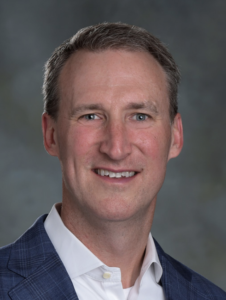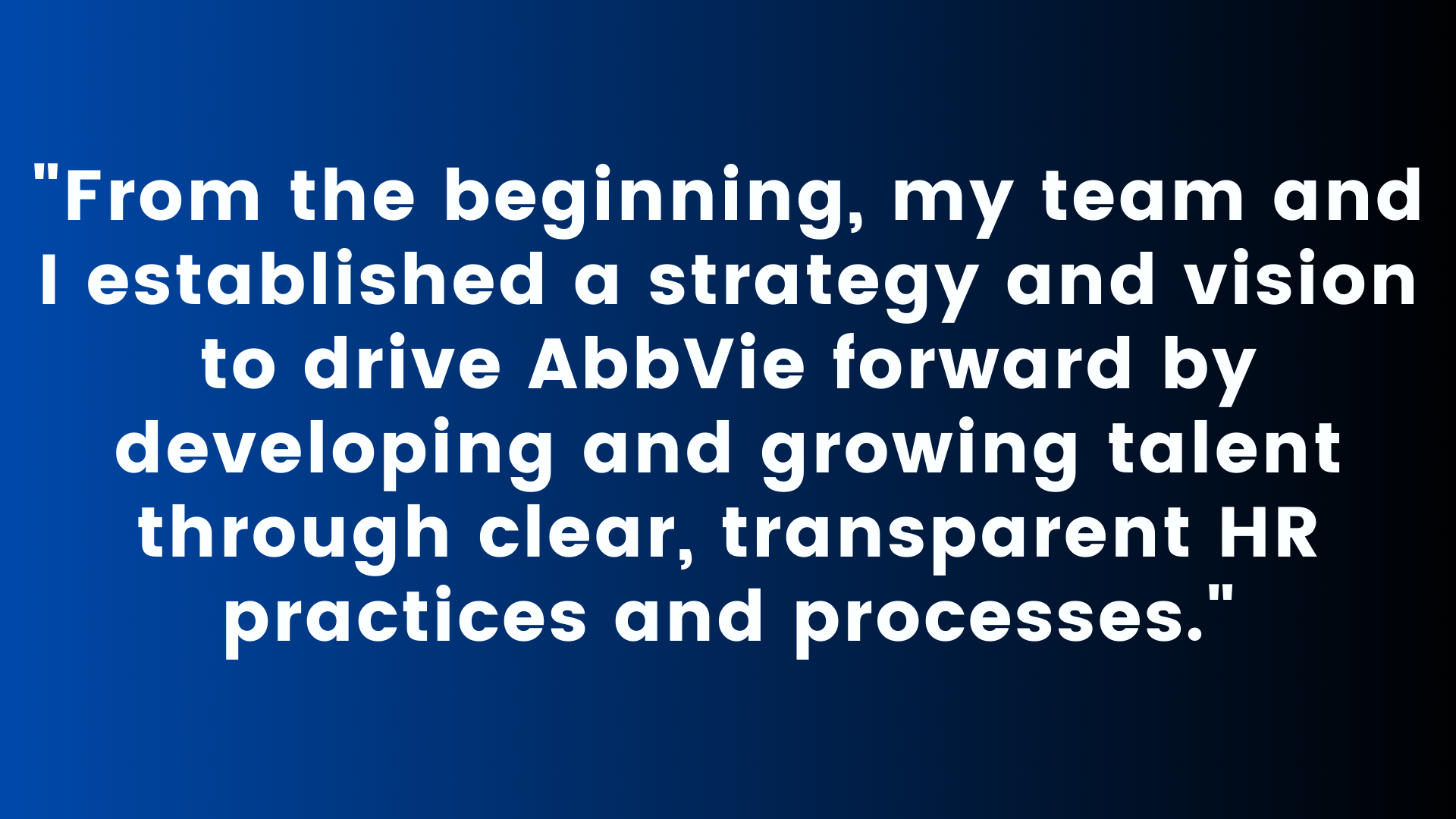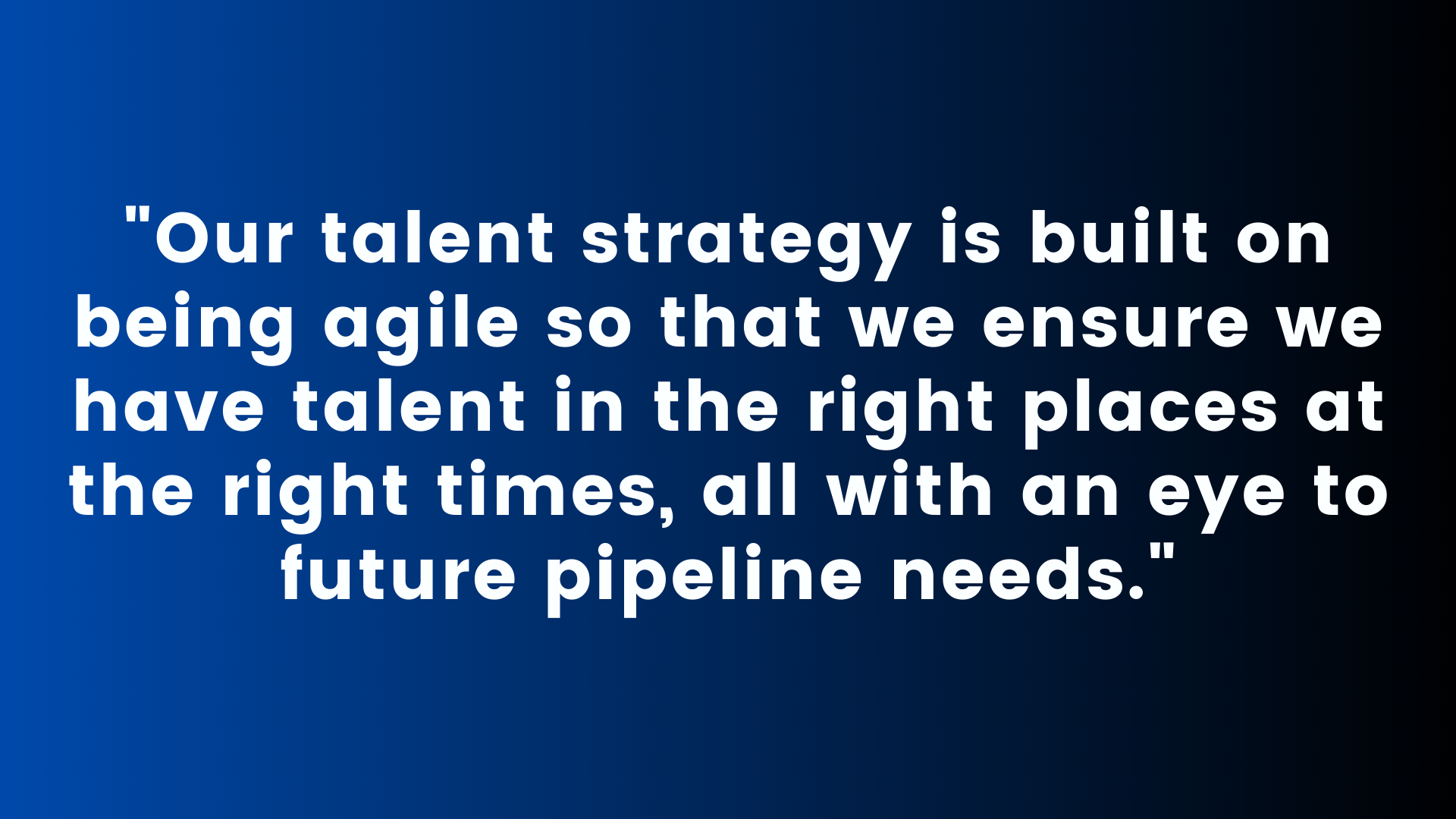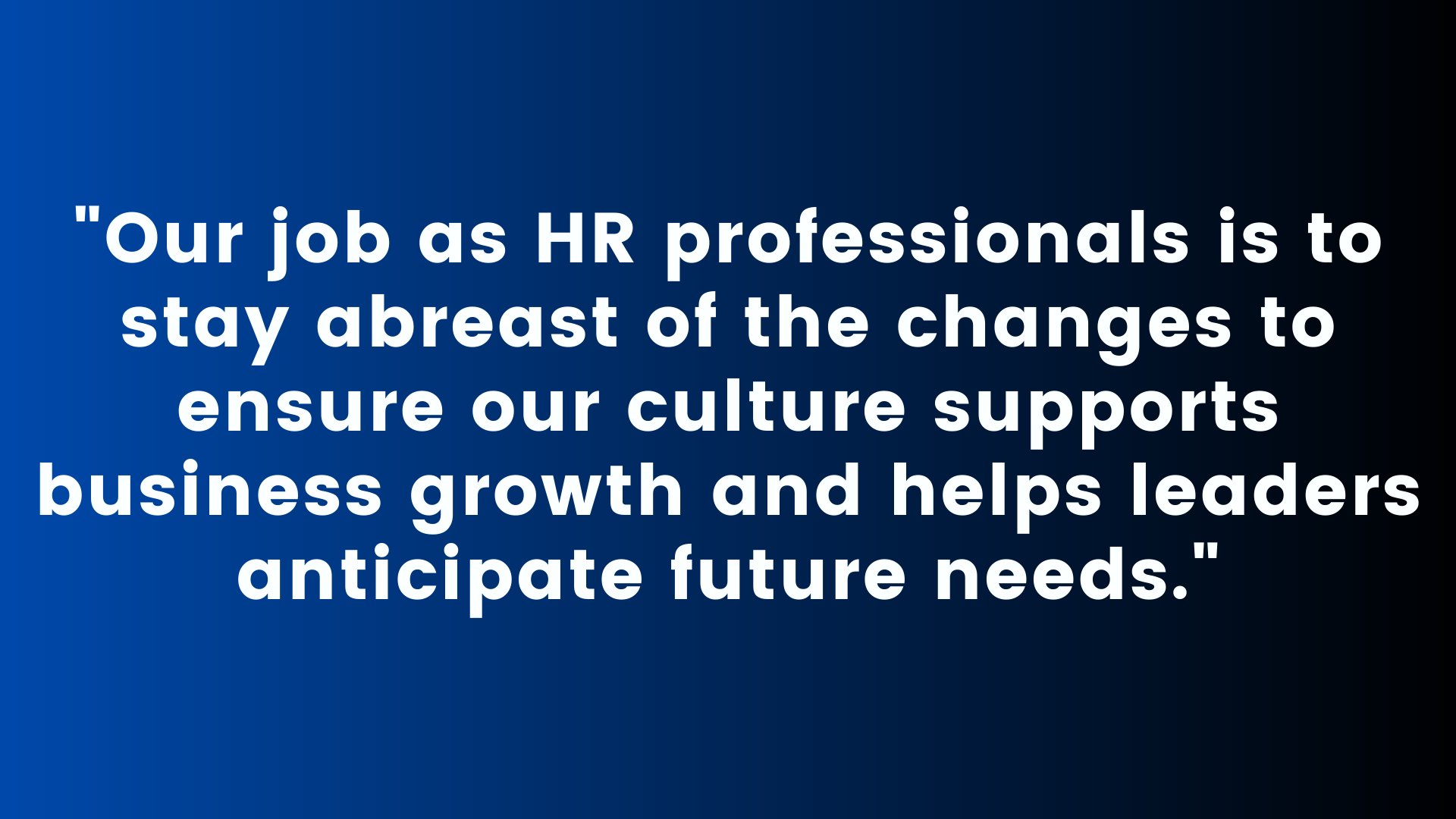InConversation: AbbVie


A Conversation With

Tim Richmond
Senior Vice President, Human Resources at AbbVie
Tim has worldwide responsibility for AbbVie’s HR activities, including total rewards, talent management, talent acquisition, HR operations, and learning & development.
Prior to AbbVie’s separation from Abbott, Tim served as Divisional Vice President, Compensation and Benefits. Previously, he worked at 3M Company in a variety of HR roles.
He earned a bachelor’s degree in journalism and mass communications from the University of Minnesota and a master’s degree in labor and industrial relations from Michigan State University.
TSG: You were appointed Senior Vice President, Human Resources of AbbVie when AbbVie spun off from Abbott Laboratories in 2013. Tell us what day one looked like for you coming into the office of a large organization that is undergoing massive change?
TR: On day one, I found myself part of a brand new global biopharmaceutical company, but one that also had a rich 125-year history of patient care. This put us in a unique position: how do you create a culture for a brand new company, while honoring the legacy and success of the premier company from which you just spun off?
From the beginning, my team and I established a strategy and vision to drive AbbVie forward by developing and growing talent through clear, transparent HR practices and processes. One of the central tenets of this was developing AbbVie’s Talent Philosophy, which outlines our expectations for all employees and underpins all that we do. The philosophy is based on the foundational components of transparency, performance, accountability, behaviors, and differentiation. Through it, all employees at AbbVie know that it isn’t just about what you deliver, but how you deliver it.
A core set of behaviors, the Ways We Work, was also developed to ensure employees understood clearly what it takes to succeed at AbbVie.

TSG: What resources do you use when planning talent strategy at AbbVie? What companies do you look up to for their leadership and/or innovation in the field of HR?
TR: Our approach to talent lies at the intersection of art and science. Our talent strategy is built on being agile so that we ensure we have talent in the right places at the right times, all with an eye to future pipeline needs.
We are attuned to these needs by the close partnership our Business HR staff has with the business; they sit in the same area, are in the same meetings, know the talent, and can anticipate future needs. Increasingly, we are looking to data and metrics to help us better understand where we are and where we need to go as an organization to get ahead of the curve.
Naturally, I was inspired by my experiences at 3M and Abbott, which has shaped my approach to HR. There are two qualities I admire in a wide range of companies: first, companies that approach HR from a very strategic point of view. In other words, they build a structure for how talent, development, and people practices and processes directly support the business. Second, companies that use data to help inform the function. Employee expectations are constantly evolving, and using data well means that HR can align development, rewards, and programs that address the whole individual to strategies and offerings that drive employee engagement.

TSG: Do you consider AbbVie’s transformation complete? If not, what remains?
TR: Our transformation will never be totally complete. Culture is never something you can check the box on. Culture changes, just as the demographics of a company’s workforce changes. Our job as HR professionals is to stay abreast of the changes to ensure our culture supports business growth and helps leaders anticipate future needs.
At the end of 2015, my team and I rolled out our next generation HR strategy. This strategy remains directly aligned with our evolving business strategies and long-range plan. That strategy speaks to the constant evolution in our business. It was designed not just for the here-and-now, but also for the next three to five years as we continue to grow.
This close alignment of HR strategies to the imperatives of the business has been well-received across the organization. Currently, a high percentage (80 percent) of leaders globally believe that HR is closely aligned with the business strategy.

TSG: What has been your biggest obstacle as Senior Vice President, HR at AbbVie? How did you overcome the obstacle?
TR: The obstacles at AbbVie are not unique to any large business. Continuing to have and encourage an enterprise leadership mindset has been the biggest area of opportunity. This mindset is closely aligned with what our business needs and requires thinking through challenges in different, more inclusive ways. This also goes hand-in-hand with the pressure to attract and retain talent in a very competitive market. At AbbVie, we believe we are reshaping biopharma, and doing so requires great people. In an organization our size, ensuring we have a robust talent pipeline, and employees poised to succeed in current and future roles, will always remain a challenge, but a motivating one.
TSG: What excites you most about your role as CHRO of AbbVie?
TR: It’s amazing to me how truly aligned this company is on our role in having a remarkable impact on our patients’ lives. Everything comes back to that. And my job, as head of HR, is to encourage us to create the culture and deliver the talent that the business needs to be successful in that mission. For that reason, it’s an incredibly rewarding place to work. Further, the opportunities for growth at AbbVie are endless and the partnership we have grown with our leadership allows us to be a meaningful contributor in helping guide strategy – that’s really the dream.
TSG: How do you define success at AbbVie?
TR: Business success at AbbVie is, of course, financial performance for the company and our shareholders, in addition to having the greatest impact possible on the lives of our patients. As Senior Vice President HR, it is also making sure that our employees have the opportunities they need to deliver on those business results. HR facilitates this through our offerings that allow employees to be their best – at work and at home. This may look like development opportunities, flexibility, premier benefits, or competitive total compensation. So, success for me is when our talent understands what they can expect of us and what we expect of them – and we all work toward the same goals.
At AbbVie, this is happening in a very real way. Our employee survey – just one measure we use to assess the effectiveness of our HR organization – tests thirteen different dimensions for engagement based on external benchmarks set by the world’s top companies, across industries. In twelve of those thirteen dimensions, AbbVie scores at or above the best companies’ benchmarks. Some dimensions have seen double-digit positive growth in the last three years. When we see indicators like that, we feel energized to maintain this high standard and to continue to find ways to improve employee engagement and, ultimately, business performance.
TSG: What does the future of AbbVie look like?
TR: The future of AbbVie is continuing to deliver on our commitment to address some of the world’s greatest health needs. From the perspective of an HR leader that means having our HR organization be embedded in the business to anticipate its needs and ensure our HR practices, programs and guidance align. It also requires us to anticipate workforce trends and to be able to flex what we offer to attract and retain top talent.